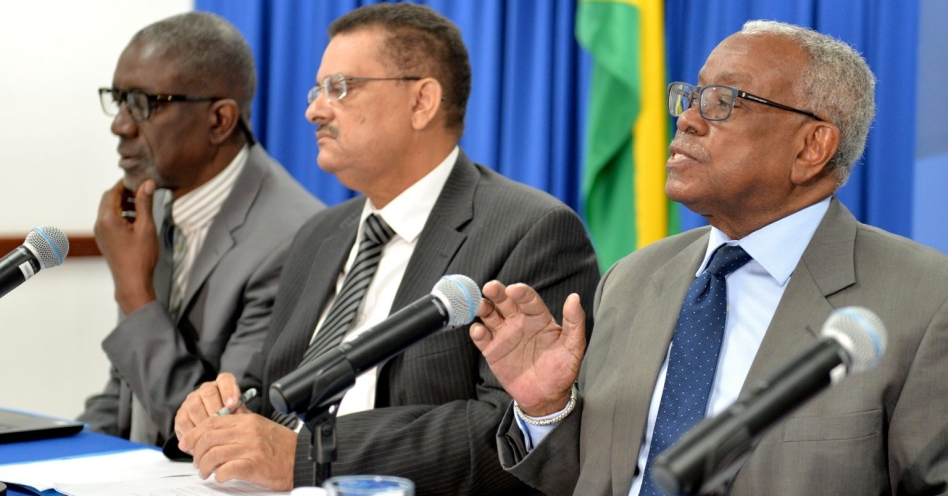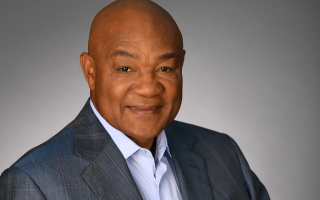Communication failure at corruption watchdog
Article By: Byron Buckley
-

- Aug 25, 2019 09:12 PM | Commentary

hairman, Integrity Commission, Justice (Ret’d) Karl Harrison (right), responds to a question at a press conference on Monday (May 13), at the Planning Institute of Jamaica, St. Andrew. Listening are Commissioners, Eric Crawford (left); and Dr. Derrick McKoy. (JIS Photo)
The communication shortcomings are being playing out because the commission has been forced to respond to questions about the valuing of real estate owned by Prime Minister Andrew Holness and Opposition Leader Dr Peter Phillips, as published recently in the summary of their statutory declaration of assets for 2018. The critical nature of the mandate given to the Integrity Commission demands a rigorous public education programme about its roles and functions.
Such a programme should have been implemented initially. If it was, it has not been effective. However, it’s not too late to do so. The commission, through its executive director, Colonel Daniel Pryce, should seize the opportunity to implement a public education campaign, which the media appear only too willing to facilitate.
In a May 2019 Press Conference, the commissioners themselves complained that the Integrity Act restricted their communication with the public. However, the matter of educating the public on the functioning of the commission is an administrative decision and should be expedited by Colonel Pryce, who appears to be obsequious to the statute.
Public Trust, Confidence
Another aspect of the communication failure, as the commissioners pointed out, is that the law demands confidentiality. While confidentiality is important to a certain degree, the administrative regime seemed to have retrogressed, as under the former Contractor General Act (which has been subsumed by the Integrity Commission Act), the Contractor General was able to update the public on ongoing investigations. Long periods of silence during an investigation does not help to build public trust and confidence.
The Integrity Commission should follow the example the Office of the Chief Justice of Jamaica and lay out a schedule to complete the prosecution of thousands of cases awaiting investigation.
The deficiencies in the administrative and legal framework of the Integrity Commission are now being acknowledged by the Parliamentary Opposition, but they played a leading role in hamstringing the corruption watchdog with a culture of secrecy and limited transparency.
My take is that there is no short circuiting the communication needs of an important state agency such as the Integrity Commission. This is even more critical when the agency is a new one.
Byron Buckley is a media and communication specialist for more than 30 years. Visit Prangle Media to read his blogs or send feedback to editorial@oldharbournews.com.





















